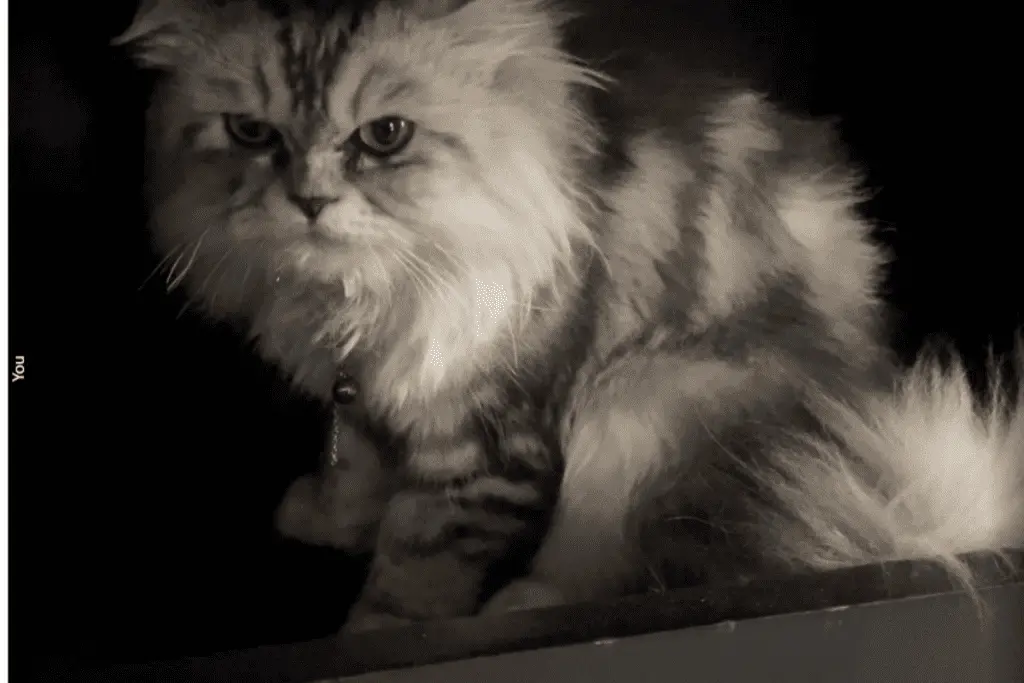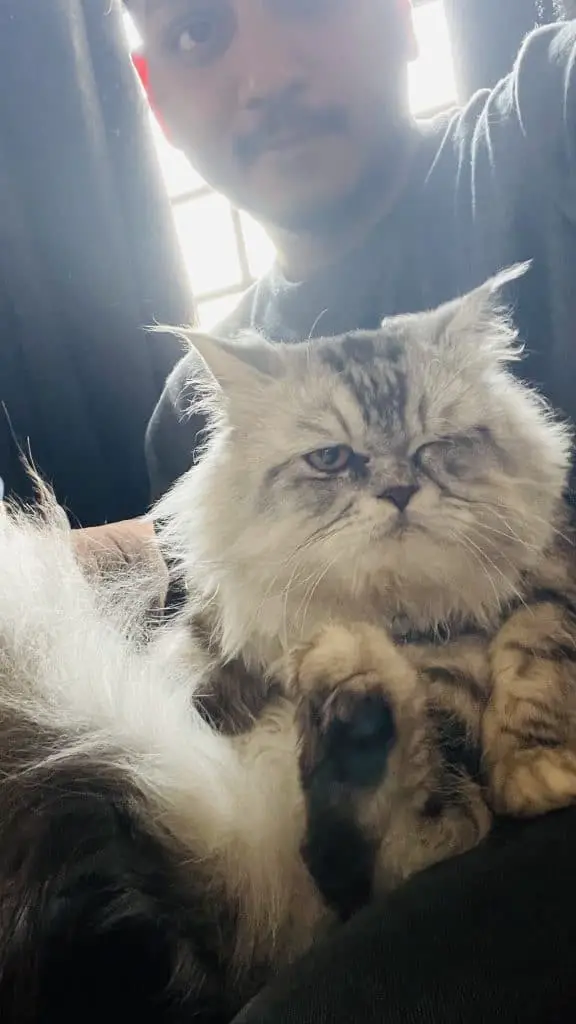Mirtazapine is a commonly prescribed antidepressant medication for humans. However, it can also be used for cats as an appetite stimulation. But even a small overdose of mirtazapine can be fatal. And unfortunately, I have experienced such an incident.
Last week, a Mirtazapine dose killed my neighbor’s cat. The medicine was prescribed, but my neighbor somehow overdosed on it. But only an overdose couldn’t kill it. The cat was suffering from allergies and liver disease that caused the death.
This incident was surely a heartbreaking one. To make people aware, I tried to analyze the incident. The results I found will be shared with you in this guide. I will also go over the risks of mirtazapine for cats and what pet owners should be aware of.

What Is Mirtazapine?
Mirtazapine is a medication used to treat depression in humans. Remeron (immediate-release tablet) and Remeron Soltab (orally disintegrating tablet) are two other names for it.
It belongs to a class of medications known as tetracyclic antidepressants. Mirtazapine makes people feel better and eat more. It is also used for cats as an appetite stimulator.
Mirtazapine works in the brain by increasing the levels of certain chemicals. These substances are known as serotonin and norepinephrine. Serotonin and norepinephrine are essential for mood, sleep, and appetite.
What Is Mirtazapine Used for in Cats?
In veterinary medicine, mirtazapine is used to stimulate appetite and treat behavioral issues in cats. It helps with appetite loss caused by medical conditions or stress. Veterinarians prescribe mirtazapine to improve cats’ well-being.
- Appetite stimulation: Mirtazapine is commonly used to stimulate the appetite in cats experiencing a decreased appetite.
- Behavioral issues: Mirtazapine can be effective for certain behavioral issues in cats. For example, anxiety and depression.
- Weight management: Mirtazapine can be prescribed to help manage weight loss in cats.
- Anti-nausea effects: Mirtazapine has anti-nausea properties, which can be beneficial for cats experiencing gastrointestinal issues.
What Is the Normal Dose of Mirtazapine for Cats?
Generally, vets prescribe 1.88 mg of the dose every 9.2 hours. They also prescribe 3.75 mg with a 15.9-hour interval. These are the usual prescriptions for adult cats.
Also, the amount of doses can be anything from 5.8 mg, 7.5 mg, 11.25 mg, 15 mg (full tablet), etc. This depends on the health condition and the treatment they actually require.
Mirtazapine doses should not create any adverse health issues if they are given as per the prescription. Rather, it helps to stimulate the appetite.
But, the worst happened to my neighbor’s cat, and I tried to find out why this happened. Let me share my findings with you. Before that, let’s know when Mirtazapine can pose a risk to your cat.
What Are the Mirtazapine Risk Factors in Cats?
Mirtazapine is a medication used to treat anxiety, depression, and appetite loss in cats. However, there are some risks associated with its use in cats.
If your cat has the following conditions, then you must be maximum cautious to give the doses. There is no chance of making a mistake. Otherwise, this can cause the worst incident.

How Did Mirtazapine Kill My Neighbor’s Cat? What Actually Happened?

My neighbor’s cat’s death shocked me because I also used Mirtazapine for my cat Muezza due to anxiety and loss of appetite. This didn’t cause any negative impact since I was highly cautious in giving doses.
By the way, my neighbor’s cat was under treatment for loss of appetite as well. The vet prescribed Mirtazapine to his cat in 3.75 mg/kg doses every 16-hour interval.
On the other hand, his cat was suffering from liver disease. Also, the cat had an allergy as well. In its case, the incident took place for various reasons.
As I discussed before, you can’t make the mistake of giving the Mirtazapine doses if your cat has an allergy and liver disease. But my neighbor made the mistake and overdosed on Mirtazapine.
As he shared with me, he gave the first dose of 3.75 mg in the morning. He gave the same dose mistakenly after he finished his shower. He just forgot that he gave the dose just 40 minutes ago.
After giving the second dose mistakenly, my neighbor went to the office, and when he came back home in the evening, the cat was showing life-threatening signs of overdose.
It went into hypothermia and became rigid. The signs might have appeared after 1 to 3 hours of overdose. Though he took the cat to the vet immediately after he came back home, the cat died at the vet hospital after the night.
The cat died within 20 hours of the overdose. By the way, the incident happened in between the clinical time range.
How Did Liver Disease Impact the Doses Put the Cat to Death?
The liver disease impacts the clearance of Mirtazapine doses. It is due to the hepatic metabolism of the liver. It enhances the shelf-life of the dose, and as a result, Mirtazapine builds up inside the stomach, which drives the adverse health situation.
So, what happened was that the dose was overdosed, and the cat had liver disease, which just boomed the situation. The allergy and the time loss also played a crucial role, which accelerated the situation.
The cats vomited a lot. No one was with it since my neighbor lives alone. The cat was caught by hypothermia and became rigid. And unfortunately, it showed the worst and died as a result.
Are There Any Side Effects of Mirtazapine?
My neighbor’s cat died due to its adverse health condition, which was accelerated by an overdose. Aside from this, there are also side effects of Mirtazapine doses, even in healthy cats if overdosed.
While most cats tolerate mirtazapine well, there are some reported side effects that can occur. These include the following.
If all these side effects, or any of them, are seen, please consult your cat’s vet immediately.
Can Mirtazapine be safely given to cats?
Yes, you can safely administer mirtazapine to your pet, particularly cats. It includes a few important procedures, vet recommendations, close monitoring, and so on.
Here are some guidelines on how to serve it, but do not just do as they say. Before using Mirtazapine on your cat, you must speak with your veterinarian. Additionally, your cat needs to have a physical examination before taking mirtazapine.
- Dosage Instructions: The typical starting dose for mirtazapine in cats is 1.88 mg (1/8th of a 15 mg tablet) given orally once every 48 hours.
- Individualized Dosage: Depending on your cat’s tolerance and desired results, this adjustment may range from 1.87 mg to a maximum of 3.76 mg (one-fourth of a 15 mg tablet).
- Feeding Routine: Give your cat mirtazapine on an empty stomach. Food should be avoided for at least 12 hours before administering the medication. This enhances its appetite-stimulating effects.
- Frequency: Mirtazapine is usually taken every 48 hours (or every other day). This dosing schedule provides enough time between doses to reduce the risk of cumulative side effects.
- Side Effects: After giving your cat mirtazapine, keep a close eye on him. Keep an eye out for signs of agitation, tachypnea, tremors, lethargy, hypersalivation, tachycardia, or vomiting. If any troubling symptoms appear, contact your veterinarian right away.
FAQs
Here are some key questions and answers about my story: How Mirtazapine killed my neighbor’s cat?. I believe this will provide you with additional information about this case.
Q: Can Mirtazapine be given to cats who have kidney disease?
Mirtazapine is not typically prescribed for cats suffering from kidney disease. This is because mirtazapine can be processed by the kidneys, and cats with kidney disease may not be able to process the medication. This can cause Mirtazapine to build up in the body, increasing the risk of side effects.
Q: What happens if you give mirtazapine to cats on a long-term basis?
Long-term use of mirtazapine in cats may increase the risk of side effects such as weight gain, drowsiness, and increased appetite. It may also interact with other medications your cat is taking. It is important to talk to your veterinarian about the risks. You can also learn about the benefits of giving mirtazapine to your cat on a long-term basis.
Q: What should you do if you notice your cat experiencing side effects after taking mirtazapine?
Immediately stop giving mirtazapine to your cat if it exhibits any negative side effects, such as drowsiness, weight gain, or an escalating appetite. Please call your veteran first to see if there is anything that can be done immediately before taking your car to the vet. He might suggest something that will reduce the risk.
However, if my neighbor had done this, he could have saved his cat.

Final Words
I believe you are now aware of How Mirtazapine killed my neighbor’s cat?. Anyway, be cautious in giving Mirtazapine if your cat has liver, heart, or kidney diseases. Don’t overdose on the medicine.
Also, be aware of the side effects of doses in any condition. Keep the advice in mind for any medicine as well. Otherwise, it may cause serious illnesses or even the death of your beloved pet.
Lastly, immediately stop giving medicine and take medical action for your cat if it shows any types of adverse signs after giving any medicine.
Here are a few pictures I collected from my neighbor; he was delighted to share them





Leave a Reply